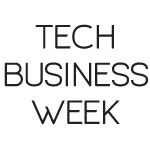Digital Marketing Agency Insights: Target Audience vs Target Market
If you employ the services of a digital marketing agency you’re likely to be told about the need to define your target audience or your target market. But what is the difference between one and the other?
The idea behind targeting your audience and your market is to create better and more relevant marketing. In return you’ll get a more efficient spend on your adverts and any marketing campaigns. Your customers will also be more satisfied because the messages are more relevant.
They’ll come back to you, bringing with them repeat business.
The idea is that if you appeal to everyone you run the risk of appealing to no-one in particular.
So What’s the Difference?
So what is the difference between a target market and a target audience? It’s easy to lose the boundaries as they tend to be used interchangeably or as a one-size-fits-all term.
Defining your Target Market
As you begin to define your market and audience you get more and more granular with the information. You’re starting broad and constantly refining.
Your target market is the general direction that you are aiming for.
Let’s say you are an optician. Your target market could be anyone with eyes. Ok, it sounds crazy but anyone who has eyes has the potential to wear glasses. But realistically you’ll need to refine it to make it more of a useful target. Two are obvious:
- Anyone who already wears glasses
- Anyone who already wears contact lenses
But you could delve deeper. You’re an optician so you know that people’s eyes naturally start to deteriorate at around the age of 40. It’s a natural thing called Presbyopia. So you could extend your target market:
- Anyone who already wears glasses
- Anyone who already wears contact lenses
- Anyone age 40 or over (or you could not target anyone under the age of 40)
Straight away you have a better place to start your marketing efforts. So when a student magazine phones up and says they have a space in their latest magazine, you know that it’s not your target market and can either negotiate a very good give-it-a-try price or turn down the offer and spend your money somewhere else.
Defining Your Target Audience
Within your target market there will be groups of people with the same behaviours that consistently purchase from you. Identify these and you have your audience within the marketplace – your target audience.
From looking within our target market we know that people from certain postcodes are regular customers. They fit the same age bracket and they have similar income brackets and education levels.
By looking at the right data you (or your digital marketing agency) can create a target audience for your business. And there are various demographics and other behaviours you can use to build your target audience. For example:
- Age (or age bracket)
- Gender (beyond male/female)
- Educational background
- Purchasing power
- Location
- Consumption habits (what and where do they buy)
It’s patterns you’re looking for. And when you find the pattern you can get super detailed with your marketing efforts. And so our target audience looks like this:
- They are homeowners
- They are predominantly female and aged between 45 and 65
- They mostly wear glasses as opposed to contact lenses
- They are degree educated
- They live in [locations]
Armed with this information you can start to create advertising and marketing that resonates with people that fit these characteristics.
Your audience are predominantly female, so combining this with your best selling eyeglasses information will inform the types of adverts you create (hint: don’t use 20-something males in your marketing imagery).
Or, going right back to the start you could target everyone who has eyesight. But that’ll be expensive and the majority of your audience won’t notice because they don’t fit your data-backed target audience research.
Final Thoughts
The scattergun approach where you market to mass audiences in the hope of a good return can work. It’s how television advertising works. But if you don’t have the budget to spend millions on advertising space your best bet is always targeting your audience. And digitally it makes more sense to target.
The beauty of digital is that you can track, tweak and refine very quickly. And that means you can control your spend better, generating a more efficient income and building a foundation of engaged, satisfied customers.

